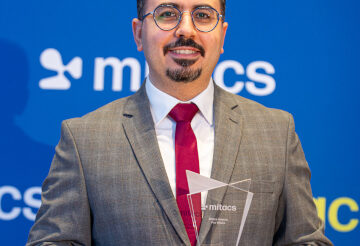Toronto researcher wins Mitacs innovation award for batteryless smart clothing – Design Engineering

Toronto researcher wins Mitacs innovation award for batteryless smart clothing By DE Staff General Materials Medical Smart garment helps manage diabetes by monitoring glucose levels through sweat. In November, Canadian not-for-profit, Mitacs, announced the winners of its annual innovation awards. For the past 13 years, the organization has celebrated exemplary Mitacs program participants whose research has fostered innovation and growth in Canada. A stand-out among this year’s winners is Reza Eslami who won the Mitacs Award for Outstanding Innovation–PhD. The chemical engineer and Toronto Metropolitan University alum – via his start-up, Sensofine – is developing a smart garment that uses integrated sensors to continuously measure blood sugar levels from sweat. To power the sensors, the garment incorporates a system that produces electric charge from everyday movements like walking. In operation, Eslami says the garment can accurately measure blood-glucose levels from just microlitres of sweat. If more sweat is required, the system automatically stimulates the skin to produce it. Readings are sent to any paired device, such as a smartphone, smartwatch or tablet. “Because glucose is 100 times less concentrated in sweat than in blood, we expect our device to be more sensitive than existing blood-glucose monitors,” Eslami said. “We’re also removing the need to worry about battery life because only one to two hours of small, typical movements will provide enough energy to power the device for 24 hours.” Currently, the company has developed a proof-of-concept wrist brace, which Eslami expects to begin user testing within the next year. Sensofine is also developing a beta version of a smart undergarment, in collaboration with Toronto’s OCAD University and Centennial College’s WIMTACH (Wearable, Interactive and Mobile Technology Access Centre in Health). The company is also investigating more functional clothing as well as a wristband, with the goal of going to market in 2025. Ultimately, Eslami aims to evolve the platform to monitor as many as 13 health parameters, including joint movement, temperature and cortisol levels for stress management. “Mitacs has supported me through six collaborations,” Eslami said, “including the hiring of four full-time research interns, and has been instrumental in spring boarding my company’s launch, growth and path to commercialization.” Eslami is one of nine Mitacs award winners nationally, chosen from thousands of researchers who take part in Mitacs programs each year. The remaining eight recipients were recognized for outstanding innovation, commercialization or exceptional leadership in other areas of research. https://sensofine.ca www.mitacs.ca Advertisement Print this page
